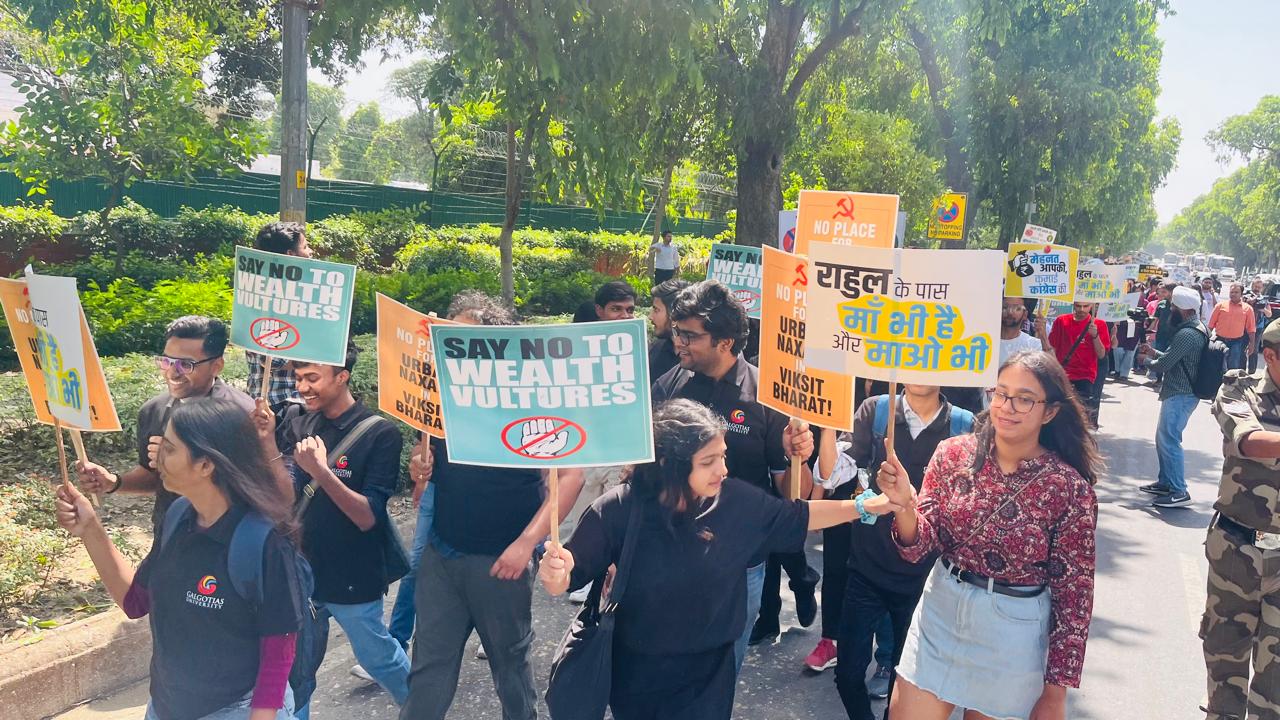Voting for the first three phases in India’s general elections has concluded and the race continues to heat up. The center-left coalition of parties and the right-wing incumbent coalition are vying for votes and clashing over the issues of wealth and income redistribution in the country.
India is the world’s fastest growing economy. However, it also has one of the highest levels of economic inequality in the world, which have grown in the last few decades. The Congress Party, leading the center left INDIA alliance, has accused the Narendra Modi-led Bharatiya Janata Party (BJP) central government of failing to take appropriate policy decisions to curb inequality. However, instead of acknowledging the need to address inequality, the BJP has twisted the claims and accused Congress of planning to rob people’s “hard earned wealth.”
During election speeches, Prime Minister Narendra Modi even claimed that Congress is planning to take wealth away from the people of religious majority community (Hindus) to give it to minority Muslims whom he accused to be “infiltrators, and produce more children.”
In its manifesto, Congress has promised to conduct a nationwide socio-economic and caste census and take measures to “address the growing inequality of wealth and income through suitable changes in policies.” Its leaders have also loosely talked about redirecting billions of dollars of tax benefits given to the corporate houses under the current government to the country’s marginalized sections.
However, though it defended the need of social and economic justice, fearing polarization on religious lines following Modi’s explicit allegations, Congress appeared reluctant to articulate how it plans to achieve that agenda. It outrightly denied it had ever planned to impose wealth or inheritance tax on the country’s super rich.
This nevertheless, has led to a national debate on the need for wealth and income redistribution in the country and ways to achieve it.
Rising inequality in India
India has seen a massive rise in inequality in the last three to four decades due to the neoliberal economic policies followed by all central governments, led by both the Congress and the BJP. The study conducted by the World Inequality Lab by Thomas Pikkety and others, says that income inequality in India is higher today than even during the inter-war British colonial period. It claims that the income of the top 1% of the population has gone up from around 6% in 1981 to over 22.6% in 2022.
The report says that 10,000 wealthiest individuals of the 92 million Indian adults own an average of Rs 22.6 billion in wealth which is 16,763 times the country’s average wealth holdings.
A country with over 228 million poor has the world’s third largest number of billionaires (271) today after China and the US.
India’s top 1% of the population owns more than 40% of all national wealth and over 22.6 % of national income. In contrast India’s bottom 60% own just 4.7% of the country’s total wealth. This is higher than the share of the top 1% in the national income of Brazil, South Africa and the US, says the World Inequality Lab study.
An Oxfam study claims the richest in India, “have cornered a huge part of wealth created through crony capitalism and inheritance.” This is hugely responsible for the chronic under investment in health, education and other essential services. Wages are mostly stagnated for over 90% of the population and there is rising unemployment.
The wage gap is clear from the example from the Oxfam study which claims “it will take 941 years for a minimum wage worker in rural India to earn what the top paid executive at a leading Indian garment company earns in a year.”
Progressive taxation along with wealth and inheritance taxes are ways through which income and wealth inequality can be tackled to some level. However, India abolished inheritance tax in 1985 during a Congress-led government and wealth tax in 2015 under the Modi regime. The Modi led government also reduced the corporate tax rates radically in 2019.
The left presents an alternative
Communist Party of India (Marxist) is the only major party which has explicitly promised the imposition of wealth and inheritance taxes and increased corporate tax in its election manifesto for this election.
The left argues that Modi’s speech should be seen in the context of the right wing’s “visceral hatred for any proposal for redistribution of wealth and incomes to tackle the high degree of inequality that exists in India.” Use of explicit bigotry is rather an attempt to shield the corporate and their profits.
Left parties have asserted that the fact that over 99% of the country’s population would not be paying any wealth tax as it would be limited to the billionaires. Using bigotry is the only way to scare the proponents of such a move. It claims that a 4% tax on the dollar billionaires in India would generate enough revenue which can increase the public expenditure in health and education to substantial levels.





